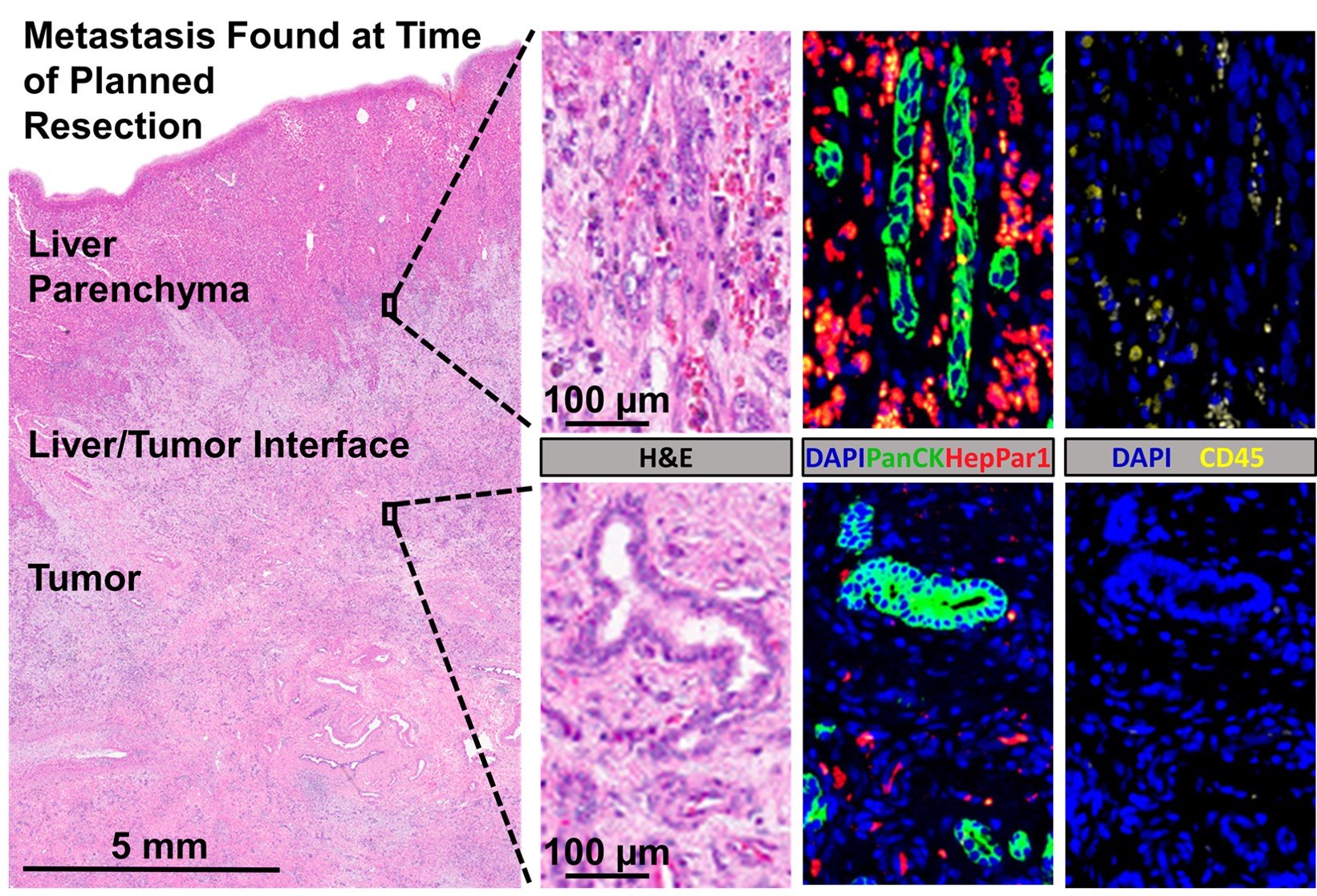Targeting Early Liver Metastases in Pancreatic Adenocarcinoma
A major focus of our laboratory is to understand the unique biology underlying early spread to the liver, and then to design novel therapeutic approaches to prevent or target hepatic metastases and improve patient outcomes.
Leveraging a biobanking effort to identify and archive very early hepatic metastases from patients undergoing surgery for pancreatic cancer, we are applying in situ spatial approaches in order to explore inflammation at the liver/tumor interface, and how the enriched immune populations specific to this location contribute to metastatic progression. We are also studying how changes in normal hepatocytes at this border permit or restrict metastatic progression.
Mechanistic insights from these studies are then tested in parallel animal models of pancreatic cancer metastasis in order to identify novel therapeutic approaches. Ultimately, the goal of these efforts is to design innovative clinical trials in human patients in order to improve survival outcomes.

